Thomas W. Kirchstetter
655 Davis Hall
Send Dr. Kirchstetter an email to schedule an appointment
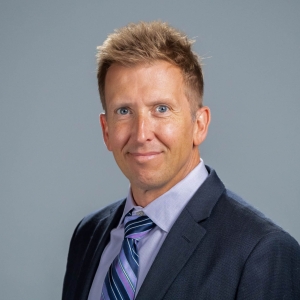
Thomas W. Kirchstetter is an Adjunct Professor of Civil and Environmental Engineering and a Scientific Division Director for Lawrence Berkeley National Laboratory. Kirchstetter’s research focuses on energy policy standards, the environmental impacts of municipal solid waste-to-energy, the optical properties of carbonaceous aerosols, and the characterization of motor vehicle emissions and control technologies. He is the Chief Scientific Advisor to the Cyclotron Road Program, which turns science concepts into viable market products and positions scientists for societal impact. Kirchstetter also received the prestigious American Chemical Society Editor’s Choice award in 2019 and the Top Environmental Technology Paper in Environmental Science & Technology award in 2017, among other notable accolades.
Postdoctoral Research Associate., Lawrence Berkeley National Laboratory, 1998 – 2000
Kirchstetter’s research focuses on inventing and benchmarking air pollution sensors, community-engaged air pollution monitoring using low-cost sensor networks, and the climate and air pollution footprints of anaerobic digestion to convert waste to energy. Here are a few of the research projects Kirchstetter is currently working on below:
Quantifying emissions from diesel trucks - Diesel engines are major sources of black carbon (BC), a major constituent of particulate matter (PM) emitted in diesel exhaust, and nitrogen oxides (NOx). To reduce these emissions and their associated adverse effects on human health and the environment, new heavy-duty diesel trucks sold in the U.S. are typically equipped with diesel particle filters (DPF) and selective catalytic reduction (SCR) systems. Similar approaches are being used in other parts of the world to control diesel engine emissions. Nationwide, reductions in emissions are expected to occur over a time scale of several decades as new trucks equipped with these emission control systems replace older, higher-emitting trucks. Kirchstetter’s research measures the in-use performance and durability of particle filters and selective catalytic reduction on heavy-duty diesel trucks to verify the emission benefits, as well as unintended consequences, of California’s retrofit/replacement policies.
Developing new air pollutant sensing technologies for communities - Black carbon emissions from fossil and biomass fuel combustion pose a health concern to urban and rural communities in developed and emerging economies. Black carbon is a major component of diesel particulate matter, a toxic and carcinogenic pollutant. It is a short-lived climate pollutant that absorbs sunlight in the atmosphere when deposited on snow and ice. Black carbon emissions contribute to climate change with a radiative forcing on par with methane. Kirchstetter's research group recently developed a small, low-cost black carbon sensor and created a first-of-its-kind community black carbon air quality network. Partnering with the West Oakland Environmental Indicators Project (WOEIP), the Environmental Defense Fund, and with the support of the Bay Area Air Quality Management District, his research team led a study of the spatial and temporal patterns of black carbon air pollution in West Oakland. The study provides an opportunity to evaluate the benefits of a network of air pollution sensors dispersed within a community over the traditional approach of monitoring air pollution at centrally located sites.
Quantifying emissions from dry anaerobic digestion of municipal solid waste-to-energy: UC Berkeley and Lawrence Berkeley National Lab, supported by the California Energy Commission, are partnering with the Zero Waste Energy Development Company (ZWEDC) to better quantify the emissions benefits and policy and economic barriers to converting organic municipal solid waste to energy. ZWEDC operates the world's largest anaerobic digestion facility in the world. Diversion of waste for the anaerobic production of biogas reduces landfill methane emissions (which comprise 20% of California's anthropogenic methane inventory), supports municipal "zero-waste" goals, and helps California build its renewable energy portfolio. Kirchstetter’s research team is quantifying emissions of greenhouse gases, odorous compounds, and other air pollutants associated with anaerobic digestion, conversion of biogas to electricity, and composting processes; conducting life-cycle cost, energy, and greenhouse gas assessments to enable the maximum economic and environmental performance of waste-to-energy facilities; and evaluating policy and economic barriers that inhibit scale-up and additional net energy export.
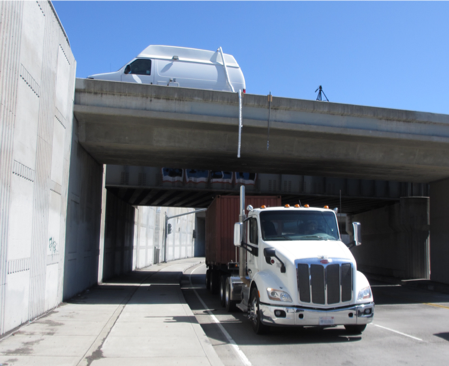
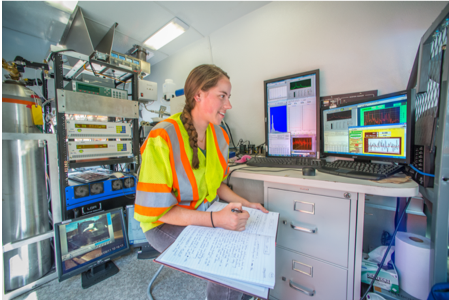
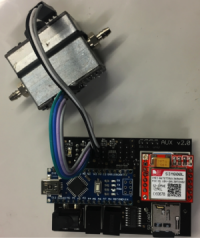
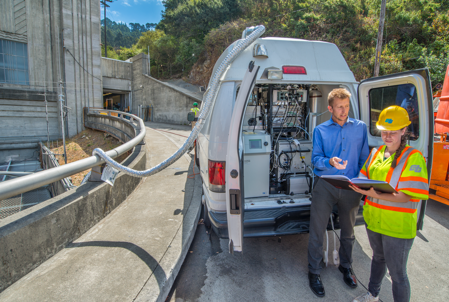

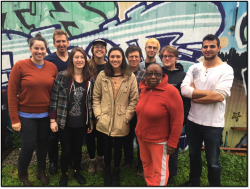
Pictured left: postdoctoral fellow Chelsea Preble; Prof Kirchstetter; undergraduate students Annie Rosen, Kelly Archer, and Shannon Chang; Berkeley Lab's Jonathan Slack; undergraduate student Carter Keeling; WOEIP's Ms. Margaret Gordon; graduate student Julien Caubel; and UCB's research specialist Troy Cados.
News
Spotlights
No mentions in Spotlights
Student Updates
No mentions in Student Updates


